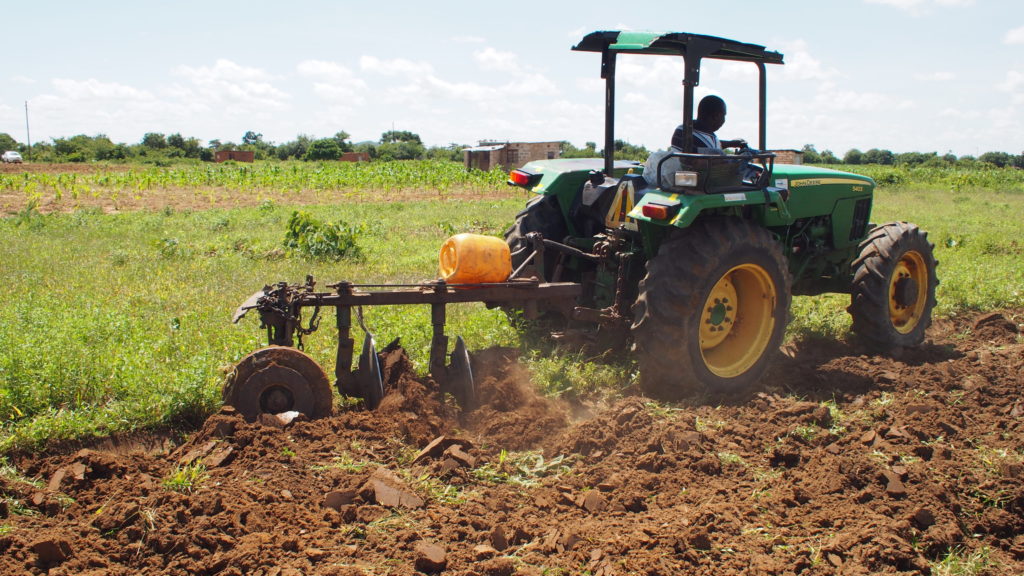Heifer International, a global nonprofit working to end hunger and poverty through sustainable farming, recently released a report highlighting how tens of thousands of Africa’s smallholder farmers have seen their livelihoods transformed by a tech-driven mechanization initiative.
The report, titled Mechanization for Africa: Innovative Financing for Agricultural Transformation and Youth Job Creation, examines the role and benefits of agricultural innovation, mechanization, and catalytic financing in empowering smallholder farming communities in Africa, while creating new opportunities in agriculture for Africa’s youth population.
It showcases how Heifer’s support and investment in innovation and youth catalysed the expansion of an agritech initiative to power large scale affordable access to tractors for smallholder farmers.
The resultant increased mechanization spurred enhanced productivity, leading to improved livelihoods for smallholding farming communities across the pilot countries in Africa.
“Smallholder farmers are the backbone of Africa’s food systems, accounting for up to 80 per cent of food production in sub-Saharan Africa” said Adesuwa Ifedi, senior vice president of Africa programs at Heifer International.
“Equipping them with the right tools and resources, including appropriate and sustainable mechanization, is essential for increased productivity.
As this report shows, access to affordable tractors increased incomes of smallholder farmers by 227% within the beneficiaries’ pool, leading to not just enhanced productivity, but a plethora of critical transformational pathways — increased inclusion, an energised ecosystem, and job creation for Africa’s energetic youth” she notes.
Impact summary
Key findings of the report include the value of catalytic financing and partnerships to scale innovative agricultural solutions, as well as the effect of affordable mechanization on improved agricultural yields, labour efficiency, and household income for smallholder farmers.
The importance and advantage of incorporating local contexts, farmer needs, and gender equity into new technologies is also emphasized.
The report reveals that the initiative provided service to 21,048 smallholder farmers in need of mechanization services in the three pilot countries of Nigeria, Kenya, and Uganda, as of December 2022.
A total of 104 farmers became tractor owners through a Pay-As-You-Go (PAYG) model. The project also created 368 direct jobs for youth serving as booking agents, tractor operators and technicians, and 784 indirect jobs across target communities.
Heifer – Hello Tractor Partnership
Heifer partnered with Hello Tractor to launch a PAYG tractor financing service to facilitate affordable tractor rental services to smallholder farmers via a tech platform that enables ease of access for beneficiaries, ease of monetization for tractor owners, and overall effective monitoring.
Hello Tractor is an agricultural technology company that connects tractor owners to smallholder farmers in need of tractor services. Hello Tractor works like the ride-hailing service, Uber, using Internet of Things (IoT) technology via the Hello Tractor app.
The Hello Tractor app is a marketplace that enables smallholder farmers’ access to equipment, while enhancing profitability for equipment owners and building technical capacity.
The app works by identifying and listing equipment owners looking to rent, recruiting booking agents and establishing them as links between equipment owners and farmers’ requests for equipment leasing.
This information available on the app also provides financiers with the data and ability to calculate returns and measure results.
The AYuTe Africa Challenge
Hello Tractor leveraged catalytic funding of US$1M from Heifer Africa’s Agriculture, Youth and Technology (AYuTe) Initiative to kickstart expansive operations.
The initiative is a catalyst for growth, combining grants with business development and ecosystem transformation initiatives to translate the energy and ideas of young African innovators into meaningful impact for African farmers.
One of the pillars of the AYuTe Africa Initiative is an annual Challenge that awards cash grants to promising young agritech innovators and firms across the continent — professionals who are using technology to reimagine farming and food production in Africa.
With the grant in place, Heifer Africa and Hello Tractor co-designed a mechanization program to ensure maximum impact and sustainability. Heifer provided additional funding of US$3.5 million in grant financing to pilot the model in three countries (Nigeria, Kenya, and Uganda).
This grant financing further unlocked commercial capital of over US$7M for increased tractor penetration and ecosystem development.
“The partnership with Heifer and Hello Tractor was the first of its kind. By injecting capital at the base of the pyramid and empowering traditionally unbanked entrepreneurs to become tractor owners, we are driving economic growth and transforming livelihoods.
This investment has unlocked commercial capital for Hello Tractor and has contributed to the prosperity of our tractor owners and the thousands of smallholder farmers they serve every season,” said Jehiel Oliver, founder and CEO of Hello Tractor.
“The impact of this project, as shown in this report, has exceeded expectations; and we are happy to have catalysed the unlocking of commercial capital that Hello Tractor needs to scale this innovation,” said Ms Ifedi.
“We encourage stakeholders, including policymakers, development organisations, and the private sector to join us to promote responsible and inclusive agricultural mechanization in Africa.”
Heifer’s commitment to advancing sustainable food systems and food sovereignty in Africa through youth-led, gender-balanced initiatives integrating innovative finance and technology is poised for significant expansion through heightened partnerships, such as the Heifer/Hello Tractor PAYG mechanization program.
Drawing on its extensive global experience and five decades of dedicated work in Africa, Heifer remains committed to reinforcing existing collaborations and forging new ones, leveraging this collective strength to achieve scalable and sustainable impact across the continent.
The mechanization initiative is currently being scaled across other countries on the continent.
Also Read
FAO Food Price Index declines in December
Ensuring nutrition is at the heart of climate smart agriculture
